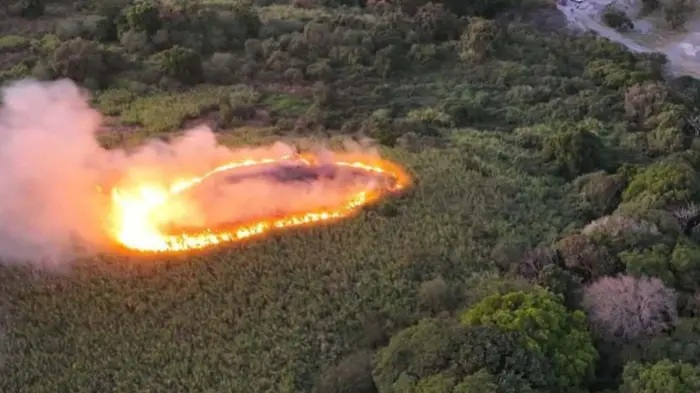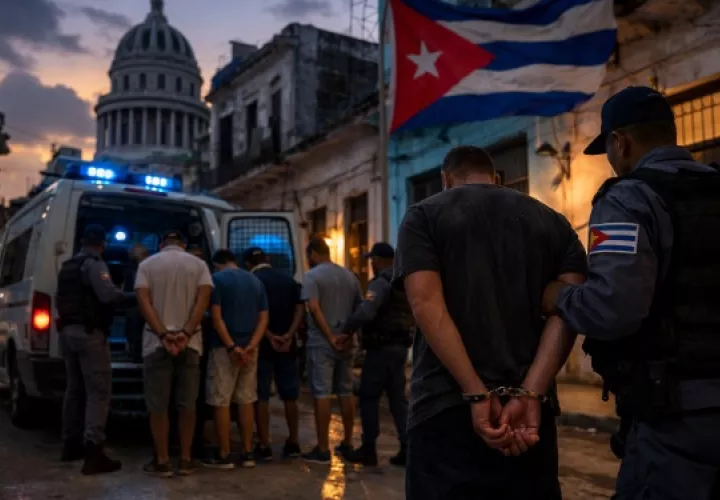The smoking gun in Metro 1 contract

A NEW investigation into former Brazilian President Luis Inácio Lula da Silva and the jailed former president of the Odebrecht, construction company could be the smoking gun linking the Ricardo Martinelli administration to a major bribery scandal.
Brazilian prosecutors said the investigation is focused on alleged bribes paid to Panama officials in exchange for the contract to build Metro Line 1
The existence of the investigation was revealed in documents made public last week in a case against Lula da Silva that is focused on alleged bribes paid by Odebrecht to government officials in Angola, reports La Prensa.
Odebrecht is also accused of paying bribes to government officials in Venezuela, Cuba, Ecuador and the Dominican Republic.
Lula da Silva is accused of having used his political influences to facilitate business of Odebrecht in the countries he visited, including Panama, which he visited in May 2011.
The trip was financed by Odebrecht.
The Brazilian investigation is focused on determining whether or not there were any cost overruns in the Metro project, and whether or not payments were made to government officials.
Brazilian prosecutors accuse Lula da Silva and Marcelo of Odebrecht money laundering, corruption and criminal organization
The thesis of Brazilian prosecutors is that cost overruns in the construction of Metro Line 1 would have paid kickbacks to officials of the Martinelli Government.
The prosecution is investigating Lula’s trip to Panamain May 2011
During his visit, Lula participated in the inauguration of the second phase of the coastal strip, in a public ceremony presided over by Martinelli and attended by the first lady, Marta Linares, and most of the ministers of the previous government, including , and then Vice President and Foreign Minister Juan Carlos Varela.
Ex-minister Alma Cortés, lawyer of f Martinelli has said in the past that they have no concern over research in Brazil, after learning of an agreement by Marcelo Odebrecht to reveal the scheme to pay kickbacks.
Cortés, is under investigation in a separate case for illegal enrichment while in office.
The legal situation of Marcelo Odebrecht -jailed almost a year and a half ago, and sentenced to 19 years and 4 months for corruption and money laundering, hangs by a thread.
According to Brazilian media, the once all-powerful executive in prison has spent months negotiating with prosecutors, to reveal everything he knows about bribes paid to politicians and former officials inside and outside Brazil in exchange for a sentence reduction of sentence.
Climbing costs
Part of this strategy is the decision of the Brazilian conglomerate to deliver investigators of Operation Lava Jato all reports of parallel accounting in Panama.
Bidding for Line 1 of the Panama Metro was awarded to Constructora Norberto Odebrecht, at an initial cost of $1.452 billion
In December 2011, the Panama Metro Secretariat announced a cost increase of 30% .
Then, after several addendums, 15.8 kilometers of subway line ended up costing $2.9 billion, ie almost 40% more than the original cost of the work.
Continued increases in the final price raised criticism, as comparisons with line 1 of Metro de Santo Domingo (Dominican Republic), with a similar length to the Panama Metro, -14.5 miles-which cost $750 million

The Italian connection
The Prosecutor of Naples in Italy has been investigating for months the possible mediation of Valter of Lavítola, a close friend of Lula, in the bidding for Metro Line 1.
The thesis of Italian prosecutors, now also working with Brazil investigators is that the contract signed with the with the Odebrecht led consortium to build Line 1 closed with the alleged payment of bribes collected by Lavítola that were transferred in part to Martinelli.
In a conversation with Spanish journalist Joan Solés while he was under house arrest, Lavítola, Lavitola revealed details on how the bribes were handled by Odebrecht.
Between $850 and $900 million “was moved to in encrypted bank accounts ” said Lavítola, who also claimed that he himself had ordered the transfer of illicit money to tax havens, work for which he said he charged 20% of the total.
Lavitola will return to trial in a Rome court in February.





